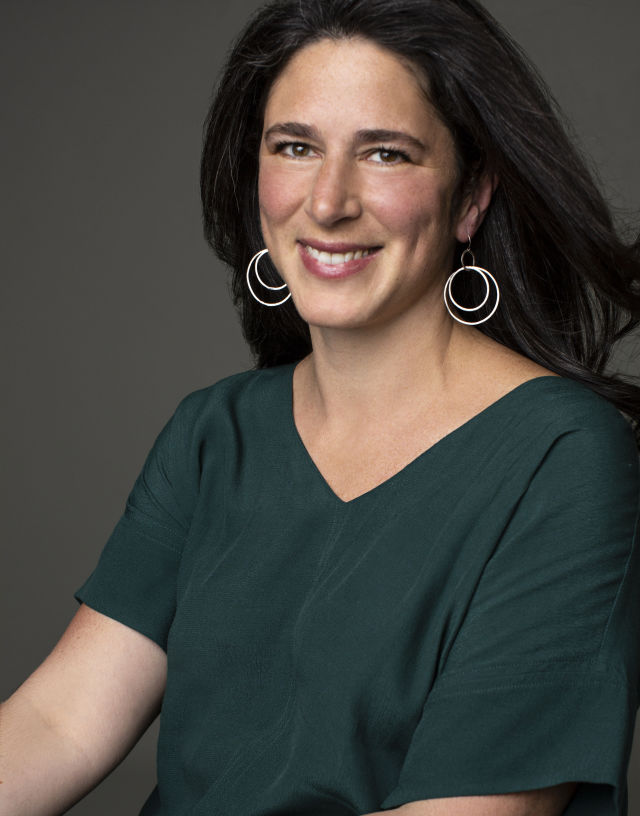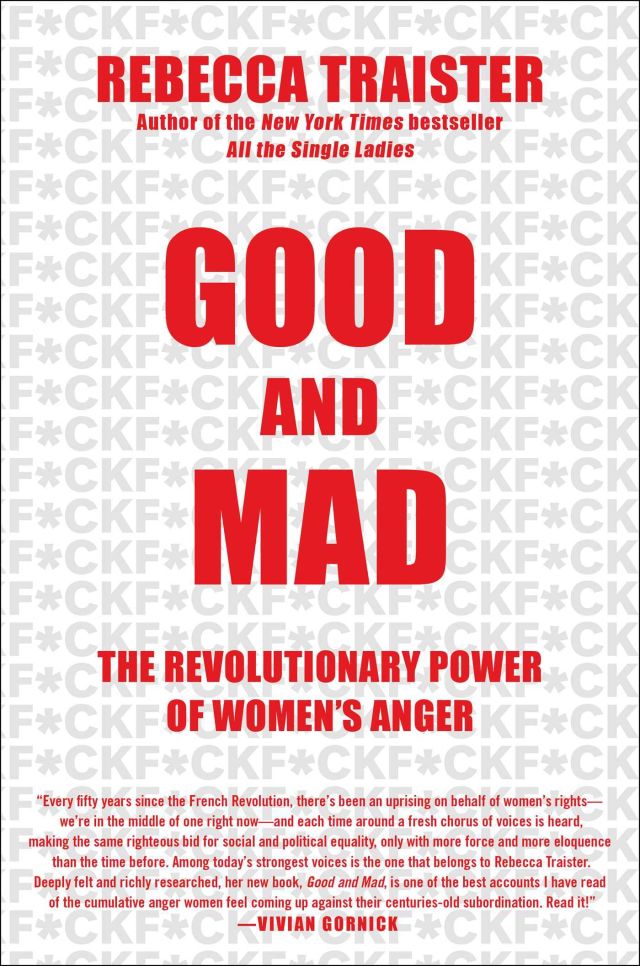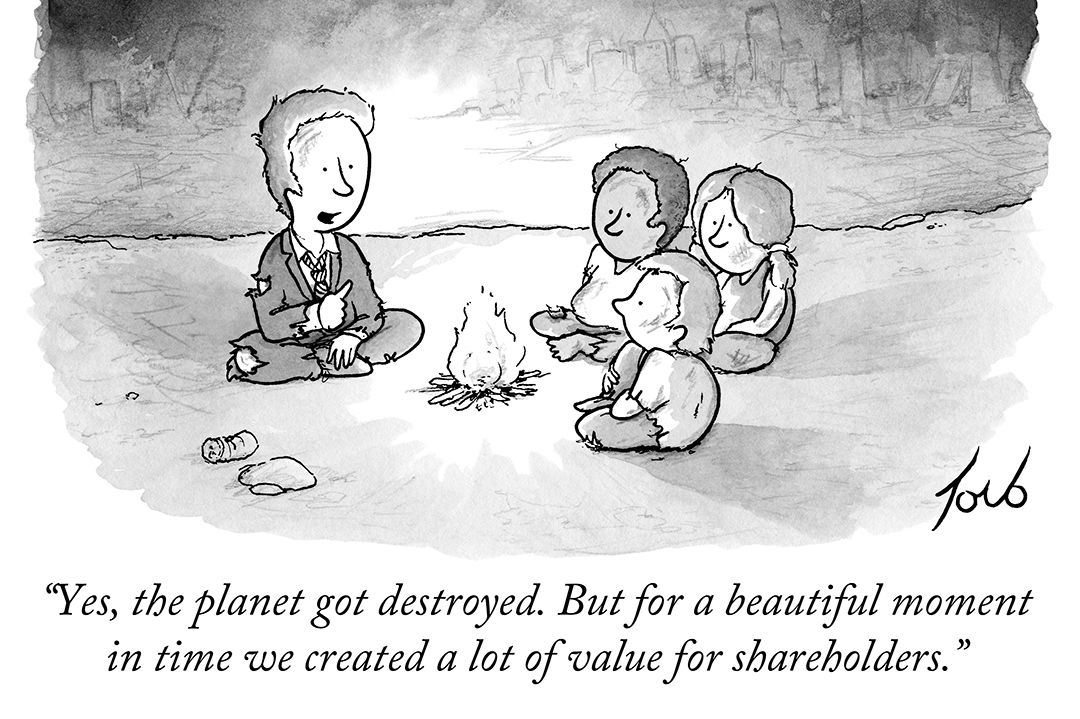Women's Rage Is Transforming America, Says Rebecca Traister

Rebecca Traister
Image: Courtesy Victoria Stevens
Two years ago, writer Rebecca Traister argued that single women were changing America. "They're forcing a reckoning with the idea that women are fully human," she said in our interview. These days, Traister is examining another way in which (fully human!) women—both single and not—are changing this country: with their fury.
In her new book, Good and Mad: The Revolutionary Power of Women's Anger, Traister chronicles how women's rage has swelled in the era of Donald Trump and #MeToo, connecting our current moment to instances of historical anger, including the fight for suffrage and protests over Clarence Thomas's Supreme Court confirmation. She argues forcefully for the political power of women's anger, while documenting the ways in which it's systematically minimized or maligned as "unserious or invalid or laughable." (Male anger, on the other hand? Often seen as "righteous or correct," as Traister wrote in a recent New York Times op-ed about the Christine Blasey Ford-Brett Kavanaugh hearing.)
Traister, a writer at large for New York magazine and contributing editor at Elle, visits Powell's City of Books on Monday, October 8. In advance of her Portland visit, we talked with her about misinterpretations of #MeToo, the relationship between rage and sadness, and how anger might actually be good for our health.
We're talking on Thursday, September 27, four hours into the Ford-Kavanaugh hearing. Any initial reactions?
It was enraging and powerful. I'm so grateful to her for being willing to do it, and I'm so mad at this country for making women put their pain on display in order to prove that their voices should be taken seriously.
Why did you want to write and publish this book now, when we're still very much in a moment of anger and tumult?
The book was originally going to be written over several years. I first thought of it even before the Women's March—it was in January [2017] that I realized I wanted to write about the history and present conditions of women's anger as politically potent. But I thought this was going to be my work throughout the Trump administration. Then so much began to happen. There was the Women's March. There were the airport protests. There were the women running for office. And then #MeToo, which was one of the most viscerally discombobulating and intense times I've ever lived and worked through. Something radical was happening. And it was the least officially political. It was happening in individual workplaces and in private corporations and with individual women. But it was revealing something intensely systemic and pernicious. And it was happening with such velocity and intensity that I was like, this is a moment of radical feminism, and I've never lived through anything like this before.
So I said to my editor, “I think I need to write this book now.” I wanted to make sure I was catching this moment and trying my best to capture the intensity and the spikiness and the disjointedness and the difficulty of it. I wanted to tell this story when it was hard and when it was fresh and when I could be as evocative as possible about it, because I felt it to be earthshaking.
This is the first book I have ever written that I hope will serve as a tool. This is not an advice book, and it doesn't offer prescription. I wanted this book to sort of serve as a guide and a reminder, to let women know that their anger is powerful, that it has historical precedence, that it's consequential, that it's meaningful, valid, and rational, because I think those are things that women are told are not true about their anger all the time. So I'm glad it's coming out before the midterms. Not that I would flatter myself to think it's going to change the way anybody votes, but it's to remind people that this thing that you're feeling and that you're doing is crucial and patriotic and correct.
Women are often told that anger is bad for us, but you contend otherwise. What's good about anger?
[For] the people who are politically angry right now, I think getting it out in some cases helps to alleviate the parts of it that might be corrosive. I don't disagree that the experience of feeling anger as a woman in America can be bad for you. But I just think that it's not the anger that might be the deleterious thing. It's the pressure to keep it in and to not give voice to it—or, if you give voice to it, being told that it's unserious or invalid or laughable. I think that's the stuff that causes so many women a maddening internal pressure that's probably not good for their health. And, of course, to point that out is not to say, “You go crazy, girl! Let your anger out!” It's not that, because there are real costs for women expressing their anger. But I just think that maybe we are doing a disservice when we suggest that the feeling of anger—which is often absolutely rational, valid, correct, a completely reasonable response to inequity and injustice—is somehow bad for your health. It's a little nutty.
What happens when women’s anger is invalidated?
Being told that if you're angry you're crazy, people aren't going to listen to you, you're unhinged, you sound shrill or unpleasant, it makes you ugly, nobody wants to be around you—having all those aspersions cast on what is in many cases a fundamentally reasonable reaction to injustice can cause tremendous stress and a feeling of being bottled, [of] not having the full range of human expression available to you.
There's this passage in Hillary Clinton’s memoir about how she prayed to not become like Miss Havisham. She prayed to God to help her not feel anger. After she was beat by Donald Trump! It's bananas. How could we not feel anger about the things that happen all around us that drive home every day the gendered and racial and economic inequalities this country is built on? Of course we're going to feel angry. But if we're told that anger is fundamentally irrational, is just emotional and feminized and worth less than the anger of white men whose political anger we fetishize—for example when we talk about the Founders—then of course that's going to make us grit our teeth. It’s denying us a part of human expression.

Image: Courtesy Simon & Schuster
You describe how you experienced salutary effects of anger as you were working on this book—how anger helped you be healthy and well in many parts of your life.
Yes! And this [was] in a period I was feeling tremendous stress. I had a very tight deadline. I had a book I desperately wanted to be good. I was feeling incredibly distraught about the state of the country and the things happening politically all around me. So it wasn't as though I was jumping through a field of daisies. But the actual lived impact of getting to take seriously the anger of women throughout history, the anger of women around me, my own anger, was, I think in retrospect, freeing and cathartic. [It was] such a relief to be able to examine this with seriousness. I slept well. I was eating well. I wanted to exercise. My relationships were good. I was speaking clearly and directly with all the people in my life and hearing what they had to say.
[But] I'm very clear in the book that that doesn't mean I'm offering that as some kind of self-help advice, because I was in an extraordinarily unusual position in that I was actually being paid to be angry. That almost never happens for women. I was not suffering any consequence from my anger. I was not going to be denied a promotion. I was not going to be arrested. A woman of color who objects to being wrongly pulled over for something, she runs the risk of being incarcerated or shot or tased, right? There are so many actual physical costs to expressing anger without apology if you're a woman, and those costs grow steeper depending on your economic status, your race, where you are geographically. I was in this extraordinarily unusual position where not only was I literally being paid for expressing my anger, but my anger was being taken seriously—and that to me is the biggest thing, that somebody was like, we want to hear you on this because we think it is politically meaningful. That felt great. It was good for me.
Another point you make forcefully in the book is that while #MeToo is in large part about sexual harassment and assault, there are also bigger issues of power and discrimination at play.
What I understood to be the fundamental challenge of the #MeToo movement in the fall of 2017 was not in response to just sexual harm. It was an examination of how often sexualized harm was actually a tool of inequality within workplaces and within power structures that still privileged men, and especially white men, and where women faced all kinds of economic, professional, public forms of discrimination. Many of those forms [of discrimination] were sexual in nature, but not all of them. The harm that was being done wasn't necessarily sexual and it wasn't just sexual. It was economic and professional. What was being exposed were fundamental inequalities. Using the frame of sexual harm is where we got into trouble: well, how is somebody grabbing somebody's ass as bad as rape? That's not what I felt the critique was. The critique was of sexism and a world in which men who had more economic power felt free to rape or grab someone's ass. [They’re] behaviors which on a sexual scale are very different from each other, but within the context of harassment, discrimination, and assault, as it plays out within workplaces and the public sphere, worked to sideline women in systemic ways.
You also say that what's threatening about women's anger isn’t necessarily the display of anger itself, but what it suggests about the power women may have.
Yeah, what it portends. Part of the reason that women's anger is discouraged is because it is a powerful tool of dissent, potentially in a political context of rebellion and revolution. So there's an incentive to keep women quiet by telling them that their anger will disqualify them or marginalize them, because if they don't get angry, then they don't hear that other women are angry, and then there's less chance for them to work together in coalition or organization to challenge the power structures.
You write about how women sometimes cry when we're angry. Why?
I thought about that this morning. When I was watching Christine Blasey Ford's testimony, I burst into tears when she started to speak. There was something about hearing her voice that—I burst into tears. Is that grief? I don't know. Where do you pick this apart? I was livid. I was livid that we had to do this. I was livid that I had to watch this woman on display. But it was also so powerful to me to hear this voice raised in challenge, in dissent, against a powerful institution and a powerful man who is extremely well defended by his peers, his class, and his party. I was very moved by that, which also can provoke tears.
But I write in the book that some of the reason we cry when we're angry is because we're also sad about the things we're angry about. Some of these things that make us furious also are goddamn tragedies, and of course we're incredibly sad about them. But I also think that tears are a more palatable form of expression of female dissatisfaction than angry voices. And to that end, we sort of know instinctively that things are going to go better for us—specifically if we are white women, whose tears are viewed as a sign of vulnerability.
To switch gears, can I ask about your daughters? How old are they? And how are you thinking about anger in regards to them?
They’re seven and three. I actually have come to slightly regret a line in my acknowledgements where I say to my daughters, your anger is important, your anger is necessary. I believe that, obviously. But I think it's more of a systemic fix. If I want to help my daughters make the world better, I think the message I am now more focused on trying to send to them, as well as to myself and to other adults, is to listen to the anger of other people with care. And that doesn't always mean to succumb to it or to not challenge it or to be angry in response. It just means to listen to the anger, especially of people who have good reason to be angry, and to take it seriously, and to think about how it corresponds with the things you are angry about, and to be angry about things outside of your own experience—to have a generous and respectful ear for the anger of other girls and women.
Rebecca Traister
7:30 p.m. Mon, Oct 8, Powell's City of Books, FREE




